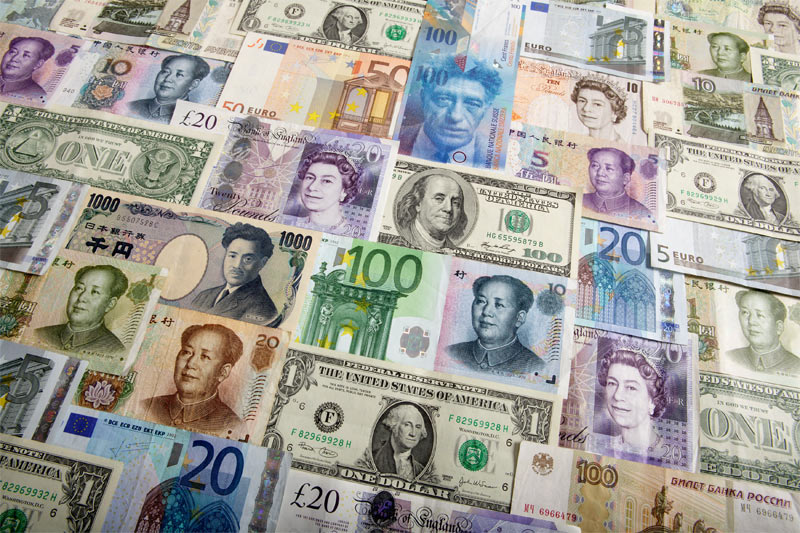Investing.com - The dollar slipped lower against the yen on Wednesday and was steady close to 14-month highs against the euro as investors consolidated gains after the greenback’s recent rally.
The US Dollar Index, which tracks the performance of the greenback versus a basket of six other major currencies, was steady at 84.80, not far from Monday’s four year highs of 84.86.
USD/JPY touched session lows of 108.47 and was last down 0.28% to 108.59.
The yen found support after Japanese Prime Minister Shinzo Abe voiced concerns over the economic impact of recent weakness in the yen.
Prime Minister Abe reportedly said that the weaker yen had both positive and negative impacts and that he wanted to carefully watch the impact of yen weakness on regional economies and on small and mid-sized companies.
The euro was steady against the dollar with EUR/USD at 1.2848, not far from Monday’s 14 month trough of 1.2815.
Earlier Wednesday, a report showed that Germany's Ifo business confidence index deteriorated for the fifth successive month in September, adding to fears over the outlook for the euro zone’s largest economy.
The Ifo economic institute's business climate index fell to 104.7 from 106.3 in August.
It was the lowest level since April 2013 and much weaker than economists’ forecasts for 105.7.
Also Wednesday, European Central Bank President Mario Draghi reiterated the bank’s commitment to accommodative monetary policy and said it will use every tool at its disposal to fight deflation in the euro area.
“Monetary policy will remain accommodating for a long time and I can tell you that the Governing Council is unanimous in committing itself to using the tools at its disposal to bring inflation back to just under 2%.”
Interest rates will remain low because they can’t get much lower,” he said.
The ECB unexpectedly cut rates to record lows across the euro zone earlier this month, in a bid to address slowing inflation.
Elsewhere, GBP/USD edged up 0.07% to 1.6400, while USD/CHF was almost unchanged at 0.9400.
The commodity linked Australian and New Zealand dollars pushed higher. AUD/USD was up 0.40% to 0.8874 off the seven month low of 0.8830 struck overnight. NZD/USD added 0.22% to trade at 0.8066, holding above the one year low of 0.8041 struck overnight.
Meanwhile, USD/CAD was little changed at 1.1077.
Investors remained cautious after U.S. airstrikes overnight in Syria fanned concerns over geopolitical risks.
The U.S. was to release data on new home sales later in the trading day.
